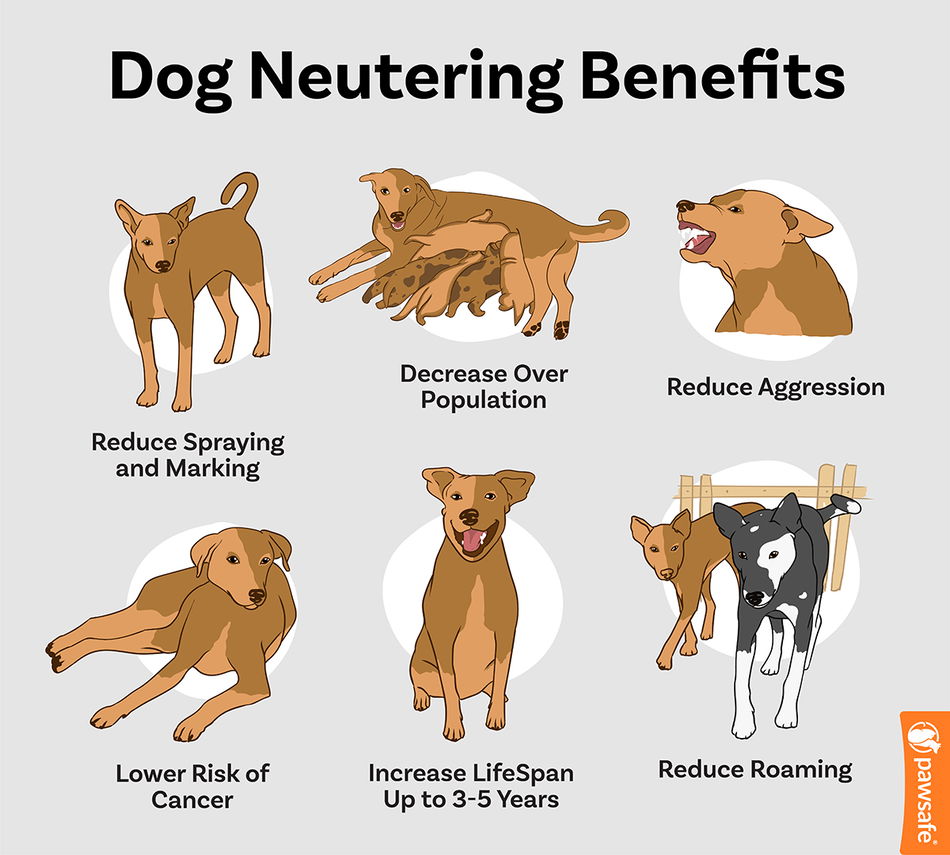So, you’ve got a lovable golden retriever and you’re wondering, “How long should I wait to neuter my furry friend?” Well, you’re in luck, because I’ve got all the answers for you!
Neutering is an important decision for any pet owner, and the timing can vary based on a few factors. So, let’s dive in and explore the ideal timeframe for neutering your golden retriever.
When it comes to neutering male golden retrievers, the general recommendation is to wait until they are at least six to nine months old. This allows them to reach a certain level of maturity, both physically and mentally, before the procedure.
Now that we’ve established a general timeline, let’s dig a little deeper into the reasons behind this recommendation. Stay tuned!
Remember, taking care of our furry friends is an important responsibility, and understanding the best timing for neutering can contribute to their overall health and well-being. So, let’s explore this topic further and make the best decision for your golden retriever.

How Long Should I Wait to Neuter My Golden Retriever?
Neutering plays a crucial role in managing the population of pets and can also provide health benefits for your golden retriever. However, the question of when to neuter your dog can be a controversial and complex topic. In this article, we will explore the different factors to consider and provide you with the necessary information to make an informed decision about when to neuter your beloved golden retriever.
1. Golden Retriever Development
Golden retrievers are a large breed that typically reach their full adult size around 18-24 months of age. It is important to consider the developmental stages of a golden retriever before deciding when to neuter. Research suggests that waiting until the growth plates have closed, which usually occurs around 12-18 months, can help minimize potential musculoskeletal issues in the future. Neutering too early can interfere with the natural development of bones and joints, increasing the risk of certain orthopedic conditions.
However, it’s important to note that every golden retriever is different, and consulting with your veterinarian is crucial in determining the optimal time to neuter your specific dog. Your vet will evaluate factors such as your dog’s overall health, breed, size, and individual development to provide personalized recommendations.
2. Behavioral Considerations
Neutering can also have an impact on your golden retriever’s behavior. While it may help reduce certain undesirable traits like aggression and roaming tendencies, it is not a guaranteed solution for behavioral issues. Some studies suggest that neutering may have a calming effect, but the extent to which it influences behavior varies from dog to dog.
If you are primarily considering neutering to address behavioral concerns, it is advisable to consult with a professional dog behaviorist or trainer. These experts can help assess your dog’s specific behavioral challenges and provide guidance on whether neutering is likely to have a positive impact. Behavioral training and management strategies may be more effective in certain cases.
3. Health Implications
Neutering can have various health implications for golden retrievers. One of the most significant benefits is the reduced risk of certain diseases and conditions. Neutering can lower the risk of testicular cancer and eliminate the risk of uterine infections and mammary tumors in female golden retrievers.
On the other hand, early neutering has been associated with a slightly increased risk of certain health issues, such as certain types of cancer, hip dysplasia, and cruciate ligament tears. However, it is essential to note that the relationship between neutering and these conditions is complex and can be influenced by various factors, including genetics and individual differences.
It is vital to have an open and honest conversation with your veterinarian, discussing the potential health benefits and risks associated with neutering your golden retriever. They can provide you with specific information tailored to your dog’s breed, age, and overall health status, allowing you to make an informed decision.
Factors to Consider When Deciding When to Neuter
1. Breed Differences and Recommendations
Each dog breed may have specific recommendations and considerations regarding the optimal time to neuter. While golden retrievers are generally recommended to be neutered between 12-18 months, it is essential to research your breed’s specific needs. Some breeds may have unique considerations related to growth development or breed-specific health concerns that influence the timing of neutering.
Consult with recognized breed associations or your veterinarian to understand if there are any specific guidelines or recommendations for neutering golden retrievers.
2. Individual Health and Development
Your golden retriever’s individual health and development should play a significant role in determining the timing of neutering. As mentioned earlier, factors such as weight, growth, and overall health status can influence the decision. It is crucial to consult with your veterinarian, who can assess your dog’s health and provide personalized recommendations based on their expertise.
3. Personal circumstances and Lifestyle
Your personal circumstances and lifestyle should also be taken into account when deciding when to neuter your golden retriever. Factors such as household dynamics, living arrangements, and the likelihood of accidental breeding should be considered. Neutering can help prevent unwanted litters and contribute to responsible pet ownership.
However, if you are a responsible pet owner who can ensure proper management and prevent unwanted breeding, delaying neutering may be a viable option. It is essential to weigh the benefits of waiting against the potential risks and work closely with your veterinarian to make the best decision for your unique situation.
Wrap-Up:
Deciding when to neuter your golden retriever requires careful consideration of various factors, including developmental stages, behavioral considerations, and potential health implications. It is crucial to consult with your veterinarian, who can provide personalized recommendations based on your dog’s breed, individual health, and overall circumstances.
By making an informed decision, you can ensure the well-being and long-term health of your beloved golden retriever.
Key Takeaways: How Long Should I Wait to Neuter My Golden Retriever?
- It is generally recommended to wait until a male golden retriever is at least 6-9 months old before neutering.
- For female golden retrievers, it is usually advised to wait until after their first heat cycle, which typically occurs around 6-12 months of age.
- Waiting for the appropriate age ensures proper growth and development of your golden retriever.
- Talking to your veterinarian is crucial to determine the best timing for neutering your golden retriever.
- Neutering can help prevent certain health issues and undesirable behaviors in golden retrievers.
Frequently Asked Questions
Gold retrievers are popular and beloved pets. If you’re considering neutering your golden retriever, it’s important to know the right time to do so. Here are some commonly asked questions and their answers:
1. What is the recommended age to neuter a golden retriever?
Neutering a golden retriever is typically recommended between the ages of six to nine months. This is considered an ideal time because it allows for proper development and growth, while also reducing the risk of unwanted behaviors associated with a dog’s sexual maturity. Waiting until this age also ensures that your golden retriever’s reproductive organs have developed enough for the procedure to be performed safely.
While it’s important to follow the recommended age guidelines, you should consult with your veterinarian, as they can provide personalized advice based on your dog’s individual circumstances, such as their overall health and breed-specific considerations.
2. What are the benefits of waiting until the recommended age to neuter my golden retriever?
Waiting until the recommended age to neuter your golden retriever can have several benefits. Firstly, it allows for the proper development of your dog’s reproductive organs, which can promote better overall health and reduce the risk of complications during the procedure.
Waiting until the recommended age also allows your golden retriever to go through their natural growth and development phase, which can have long-term benefits on their bone and joint health. Additionally, waiting until this age can help in preventing certain behavior issues associated with early neutering, such as aggression and anxiety.
3. What are the potential risks of neutering a golden retriever too early?
Neutering a golden retriever too early, before the recommended age, can potentially pose health risks. Early neutering may interfere with the normal development of your dog’s reproductive organs, leading to growth abnormalities and an increased risk of certain health issues, such as joint disorders and urinary problems.
Neutering a golden retriever before they reach the recommended age may also lead to behavioral issues. Studies suggest that early neutering can increase the risk of certain behavior problems, such as aggression, fearfulness, and separation anxiety. It’s important to note that each dog is unique, and the potential risks may vary based on individual factors, so consulting with a veterinarian is crucial.
4. Are there any specific considerations for female golden retrievers?
When it comes to female golden retrievers, the recommended age for spaying (the equivalent to neutering) is typically between six to nine months, similar to males. Spaying your female golden retriever at this age can help prevent unwanted pregnancies and reduce the risk of certain reproductive health issues, such as uterine infections and mammary tumors.
Choosing the right timing for spaying your female golden retriever is essential, as early spaying before the recommended age can lead to potential health problems, such as urinary incontinence and bone growth issues. Your veterinarian will be able to provide further guidance based on your golden retriever’s specific needs and circumstances.
5. How long does it take for a golden retriever to recover from neutering?
The recovery time for a golden retriever after neutering can vary. Generally, it takes about ten to fourteen days for the surgical incisions to heal. During this time, it’s important to limit your dog’s activity, provide them with a comfortable and quiet space to rest, and follow any post-operative instructions provided by your veterinarian.
Mild swelling and discomfort at the incision site are normal, but if you notice any excessive bleeding, discharge, or signs of infection, it’s crucial to contact your veterinarian. They will be able to evaluate your dog’s recovery and provide any necessary care or guidance to ensure a smooth healing process. Keep in mind that each dog is different, and your veterinarian can provide personalized advice regarding the recovery of your golden retriever after neutering.

Summary
If you have a golden retriever, it’s important to think about when to get them neutered. There are a few things to consider. First, waiting until your dog is fully grown and mature is a good idea. This usually happens around 1-2 years of age. Second, there are some health benefits to waiting, like reducing the risk of certain cancers. However, if you have a female dog, it’s best not to wait too long because they can get pregnant.
So, to sum it up, it’s generally recommended to wait until your golden retriever is 1-2 years old before getting them neutered. This allows them to fully develop while also potentially reducing the risk of certain health issues. If you have a female dog, it’s important to be mindful of their fertility and not wait too long. Always talk to your veterinarian to make the best decision for your furry friend.